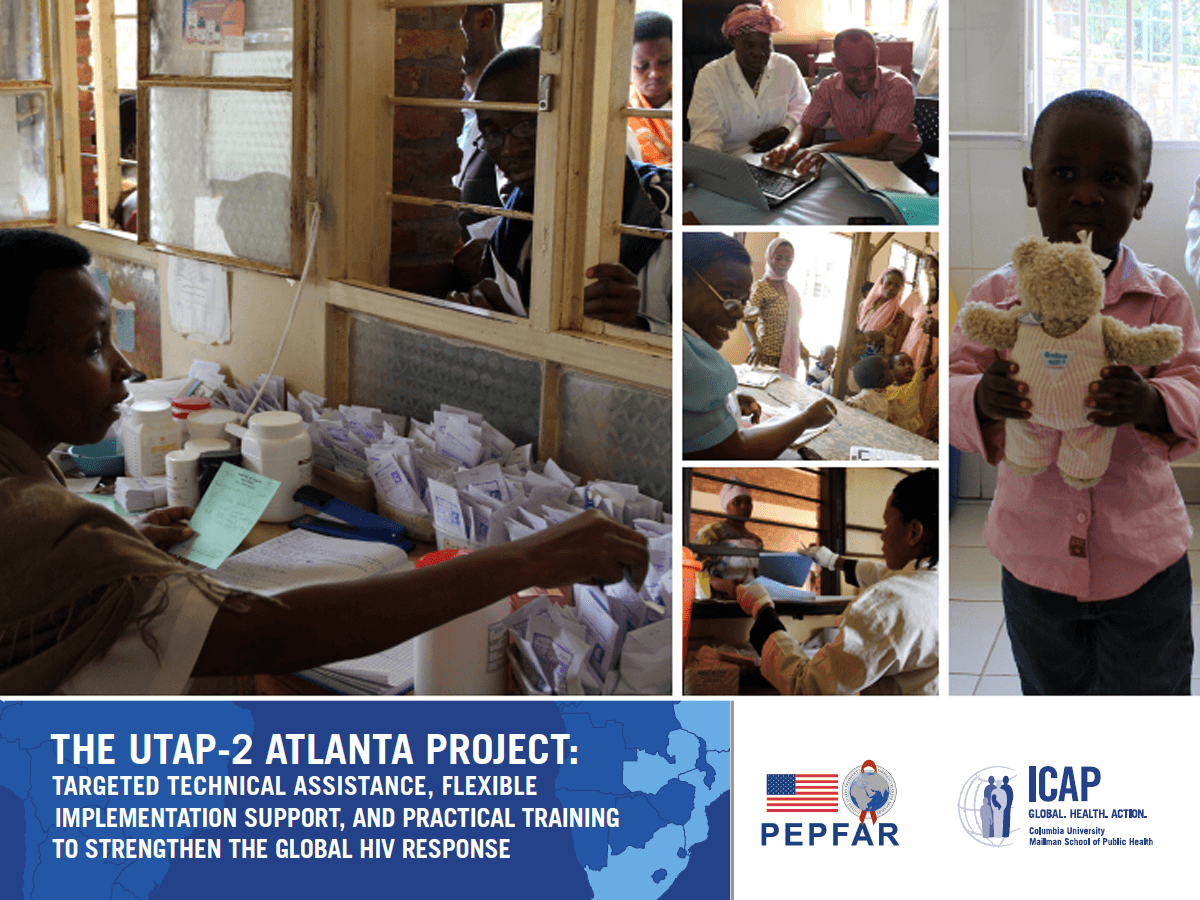In September 2002, the Mailman School of Public Health (MSPH) at Columbia University (CU) entered into a Cooperative Agreement with the Centers for Disease Control (CDC) for the University Technical Assistance Projects (UTAP) in Support of the Global HIV/AIDS Program. Situated within ICAP, UTAP was originally envisioned as a single-country program for the provision of technical assistance, but rapidly grew to include long-term and short-term technical and administrative assistance to the national responses to HIV/AIDS in five countries: Mozambique, Rwanda, South Africa, Tanzania, and Zambia.
As the original UTAP project drew to a close and PEPFAR moved into its second phase—focused on sustainability—ICAP entered into several, follow-on Cooperative Agreements, called UTAP-2. Four were country-focused (in Côte d’Ivoire, Democratic Republic of Congo, Swaziland, and Tanzania) and the fifth—UTAP-2 Atlanta—became a flexible mechanism for providing a wide range of technical assistance and other support to PEPFAR countries. After beginning in 2009 as a means to help CDC conduct surveillance training more efficiently through distance education, UTAP-2 Atlanta grew over the next six and a half years to comprise 11 distinct projects addressing needs and gaps in the HIV response and answering important research questions to inform the response going forward.





